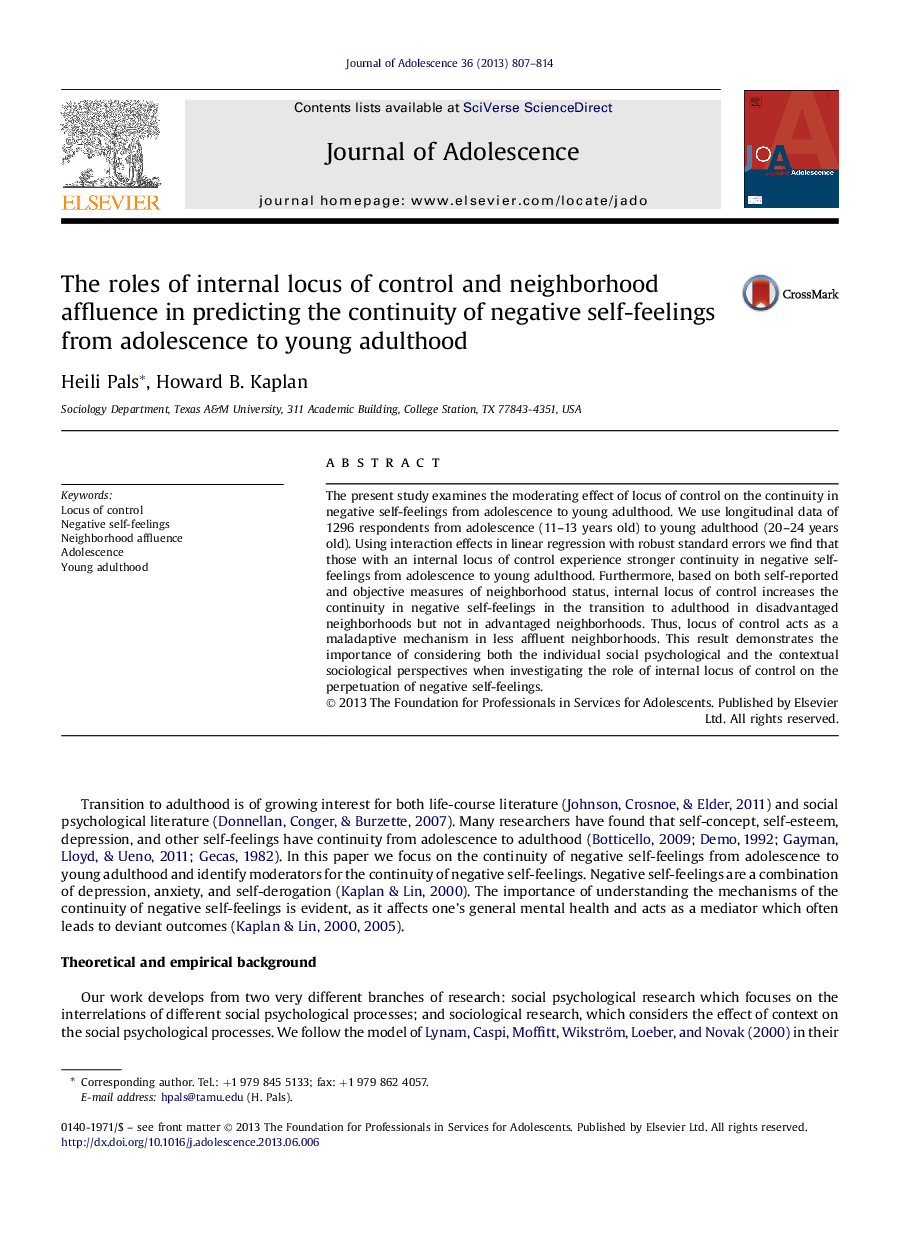| Article ID | Journal | Published Year | Pages | File Type |
|---|---|---|---|---|
| 880915 | Journal of Adolescence | 2013 | 8 Pages |
The present study examines the moderating effect of locus of control on the continuity in negative self-feelings from adolescence to young adulthood. We use longitudinal data of 1296 respondents from adolescence (11–13 years old) to young adulthood (20–24 years old). Using interaction effects in linear regression with robust standard errors we find that those with an internal locus of control experience stronger continuity in negative self-feelings from adolescence to young adulthood. Furthermore, based on both self-reported and objective measures of neighborhood status, internal locus of control increases the continuity in negative self-feelings in the transition to adulthood in disadvantaged neighborhoods but not in advantaged neighborhoods. Thus, locus of control acts as a maladaptive mechanism in less affluent neighborhoods. This result demonstrates the importance of considering both the individual social psychological and the contextual sociological perspectives when investigating the role of internal locus of control on the perpetuation of negative self-feelings.
